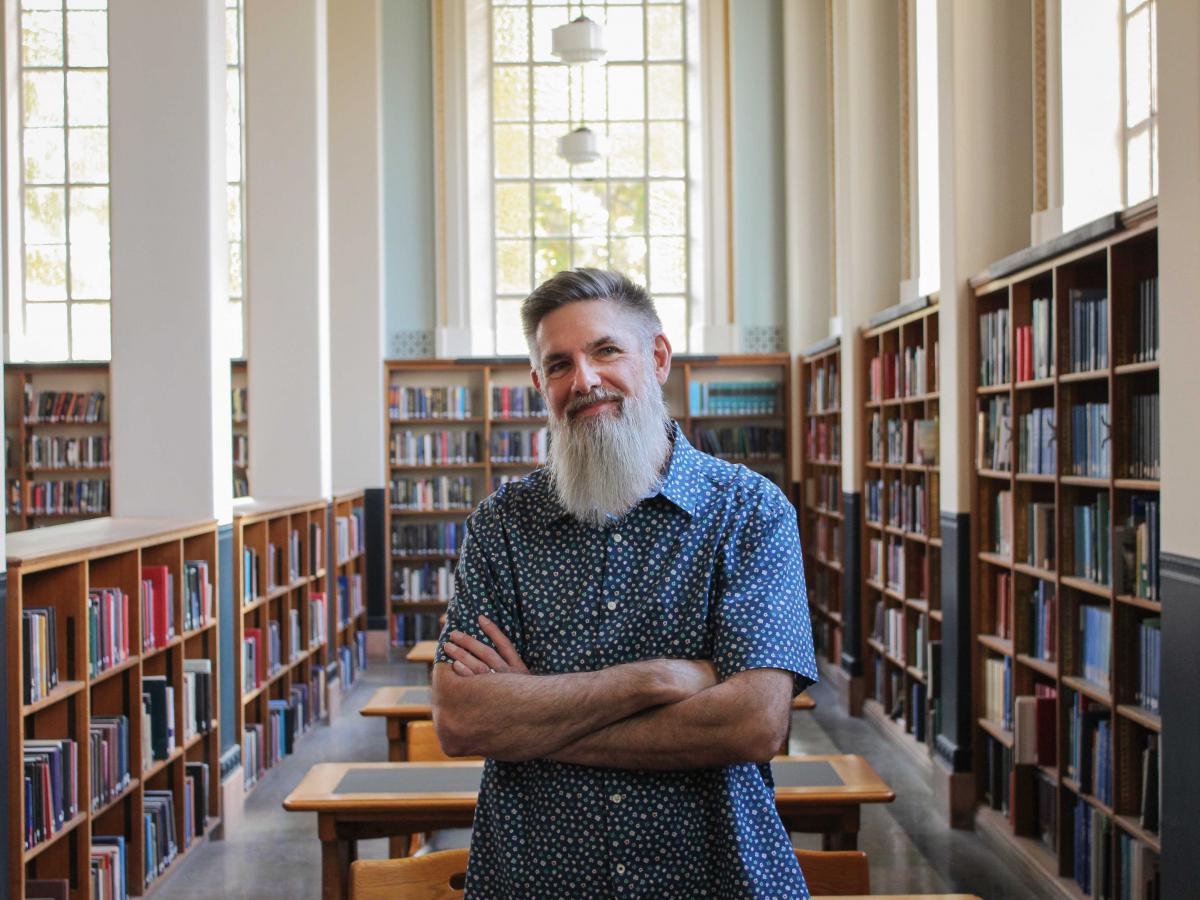A career dedicated to unearthing the secrets of matter

Professor Derek Leinweber
The University of Adelaide’s distinguished theoretical physicist, eminent, Professor Derek Leinweber, has been elected Fellow of the Australian Academy of Science in recognition of an outstanding career dedicated to unearthing the most fundamental secrets of matter.
Professor Leinweber is renowned for elucidating the phenomena emerging from Quantum Chromodynamics (QCD), the relativistic quantum field theory of the strong interactions.
“I congratulate Professor Leinweber on being elected as a Fellow of the Australian Academy of Science,” said Professor Peter Høj AC, Vice-Chancellor and President, the University of Adelaide.
“Becoming a Fellow is a reflection of the importance that the scientific community places on Derek’s fundamental research and the impact that it has on extending our understanding of physics.”
Professor Leinweber, who is from the University’s School of Physics, Chemistry and Earth Sciences, has dedicated his career as a theoretical physicist to understanding and unravelling the fundamental aspects of matter. He explores the nature of matter deep inside the atomic nucleus at the heart of the atoms of which we are all made.
“Being elected to the Australian Academy of Science is an extraordinary professional honour,” said Professor Leinweber.
“It marks a journey that began with curiosity about the fundamental quantum field theories of nature, and excitement in how new computational methods could be used to resolve their structure. Together, these interests have grown into a lifelong pursuit of understanding the forces that shape our universe.
“This recognition reflects the collective achievements of a remarkable research environment at the Centre for the Subatomic Structure of Matter.”
Physicists are driven to understand matter because it forms the foundation of nearly all observable phenomena in the universe. Understanding matter is crucial for comprehending the universe's composition, behaviour, and interactions. In studying matter, physicists develop new technologies, improve our understanding of fundamental forces, and potentially answer some of the universe's biggest mysteries.
Professor Leinweber has published more than 500 research papers which have been cited more than 14,500 times by fellow experts around the world. Teaching at all levels, he is passionate about providing students with an excellent learning experience for which he has received many awards.
“It’s been such a great pleasure to collaborate with mentors such as Tony Thomas, colleagues including Waseem Kamleh and Finn Stokes, and many outstanding graduate students, whose creativity and determination have shaped our discoveries,” said Professor Leinweber.
“For me, this recognition affirms the value of long-term, curiosity-driven basic research. There is deep satisfaction in uncovering the wonderfully intricate and beautiful structures that emerge from simple physical laws, as described by QCD.
“It also speaks to the strength of our undergraduate physics program at the University of Adelaide, which prepares our students for research and attracts exceptional talent from around the world to explore the fundamental nature of matter.”
Performing direct first-principles supercomputer simulations, Professor Leinweber disclosed the structure of the QCD ground-state fields forming the foundation of matter. He illustrated how the fundamental mechanism of centre vortices in the fields confine quarks and generate the mass of the proton from nearly massless quarks.
His ab-initio calculations — those derived from the fundamental theory and independent of model assumptions – of the electromagnetic structure of nucleon and Lambda-baryon excitations lead the field, advancing theoretical techniques. Combining these breakthroughs with novel developments of nonperturbative effective field theory, Professor Leinweber has revolutionised our understanding of QCD.
“This honour is also a call to serve — to help shape science initiatives, advocate for stable research funding, support emerging scientists, and champion the vital role of basic science in society,” said Professor Leinweber.
Media Contacts:
Crispin Savage, Manager, News and Media, The University of Adelaide. Mobile: +61 (0)481 912 465, Email: crispin.savage@adelaide.edu.au
